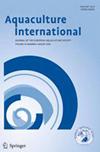摘要
蟹类种类繁多,准确识别对于生产管理、成熟度预测、产量估算、自动分类和质量分级至关重要。现有的深度学习方法通常需要同时输入所有类别的样本,这是不现实的,因为难以获得足够的训练样本,而且样本收集具有长期性。增量学习提供了一种解决方案,它能让模型在学习新类别的同时保留以前类别的知识。本研究提出了一种基于改进的自适应聚合网络,通过再平衡间接学习统一分类器(AANets-LUCIR)框架的蟹类物种识别方法。AANets 结合 LUCIR 作为基线。ResNet18 主干网通过用 ReLU6 代替激活函数来保留图像特征,并在每个 BasicBlock 模块中引入高效的金字塔分割注意力机制来加强特征提取,从而得到了改进。此外,还集成了基于 k-means 聚类的样本重放策略,以提高对新数据的适应性,同时保留旧知识。在自建数据集上进行的实验取得了优异的结果,适应性平均得分 92.30%,基础得分 89.80%,最终评估得分 91.66%。与 iCaRL、Bic、LwF、EWC 和 Replay 相比,拟议方法的最终得分分别提高了 10.15、5.83、21.76、7.2 和 17.61 个百分点。该方法有效地解决了增殖蟹物种分类的难题,支持了智能水产养殖的发展。Crab species are highly diverse, and accurate identification is vital for production management, maturity prediction, yield estimation, automated sorting, and quality grading. Existing deep learning methods typically require all category samples to be input simultaneously, which is impractical because of the challenges of obtaining sufficient training samples and the long-term nature of sample collection. Incremental learning offers a solution by enabling models to learn new categories while retaining knowledge from previous ones. This study proposes a crab species recognition method based on an improved adaptive aggregation networks learning a unified classifier indirectly via rebalancing (AANets-LUCIR) framework. AANets combined with LUCIR serves as the baseline. The ResNet18 backbone is improved by replacing the activation function with ReLU6 to preserve image features and introducing an efficient pyramid split attention mechanism in each BasicBlock module to enhance feature extraction. A k-means clustering-based sample replay strategy is integrated to improve adaptation to new data while retaining old knowledge. Experiments on a self-constructed dataset yielded excellent results, with average scores of 92.30% for adaptability, 89.80% for base, and 91.66% for the final evaluation. Compared with iCaRL, Bic, LwF, EWC, and Replay, the proposed method improved the final scores by 10.15, 5.83, 21.76, 7.2, and 17.61 percentage points, respectively. This approach effectively addresses the incremental crab species classification challenges and supports the development of intelligent aquaculture.

 求助内容:
求助内容: 应助结果提醒方式:
应助结果提醒方式:


